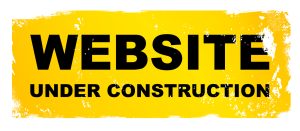Request a Appointment
How Can Selling Your Property Help Avoid Foreclosure?
Selling your property involves listing your home on the market, finding a buyer, and transferring ownership of the property to the buyer. The proceeds from the sale are then used to pay off your existing mortgage. If the sale price is higher than your outstanding mortgage balance, you may be able to keep the difference. If the sale price is less than your outstanding mortgage balance, you'll need to make up the difference, unless you're able to arrange a short sale with your lender.
Selling your property can help you avoid foreclosure in several ways:
Paying Off Your Mortgage:
If you're able to sell your home for enough to pay off your mortgage, you can avoid foreclosure entirely. This is the best-case scenario, but it requires that you have enough equity in your home to cover the outstanding mortgage balance and any selling costs.
Buying Time:
Even if you're not sure you can sell your home for enough to pay off your mortgage, listing your home for sale can sometimes delay the foreclosure process. In some cases, lenders may be willing to delay foreclosure proceedings if they know you're actively trying to sell your home.
Avoiding the Negative Impact of Foreclosure:
Selling your home can help you avoid the negative credit impact of a foreclosure. While selling your home to avoid foreclosure can still negatively impact your credit, the effect is typically less severe than a foreclosure.
Considerations When Selling Your Property
While selling your property can be a useful tool to avoid foreclosure, there are several factors to consider:
Market Conditions:
The success of this strategy largely depends on the real estate market conditions in your area. If homes are selling quickly and prices are high, you may be able to sell your home before foreclosure. If the market is slow, it may be more difficult.
Home Equity:
You'll need to have enough equity in your home to cover the outstanding mortgage balance and any selling costs. If your home's value has decreased since you bought it, you may owe more on your mortgage than your home is worth.
Selling Costs:
Selling a home involves several costs, including real estate agent commissions and closing costs. You'll need to factor these costs into your calculations when determining whether selling your home can help you avoid foreclosure.
Engage a Real Estate Agent:
Considering the urgency of a pre-foreclosure sale, working with a professional can help navigate the process efficiently. Agents have local market knowledge, negotiation skills, and marketing resources to reach potential buyers quickly.
In conclusion, selling your property can be a viable foreclosure solution for some homeowners in Georgia. However, it's important to consider the potential costs and the current real estate market conditions. It's recommended to consult with a real estate professional to determine if selling your property is the best solution for you.
Legal Considerations and Assistance
In Georgia, the foreclosure process typically moves quickly, often within a few months. Therefore, seeking legal advice is recommended to ensure you understand your rights and the timelines you're working against.
Furthermore, you may want to seek assistance from a HUD-approved housing counselor. These professionals offer free or low-cost advice on foreclosure prevention options and can guide you through the process of selling your property under foreclosure pressure.
Selling your property to avoid foreclosure in Georgia can be a complex, stressful process. However, with an understanding of your home's value, a proactive approach, professional guidance, and open communication with your lender, you can navigate the challenge and mitigate the potential impacts of foreclosure on your financial future.
© All Copyrights 2023 Metropolitan Realty Group
Website powered by LeadMode Digital Marketing

